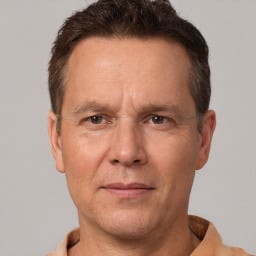Question :
This unit is based on reflective analysis which includes a discussion of the learning activity and self-analysis of own thoughts using relevant theory.
- Provide a definition of leadership
- Give discussion of questionnaire and impact of the results.
- Discuss class activity and their impact
- What are the areas of leadership development and ways of improving them.
Answer :
INTRODUCTION
The ability to inspire confidence and support among the people who are needed to achieve organisational goals (Aarons and et.al., 2015). Leadership Effectiveness refers to attaining desirable outcomes such as productivity, quality, and satisfaction in a given situation. There are different theories of leadership proposed by senior researchers such as Trait Theory, Great Man theory, etc. In this context, I will elaborate the various perspective on leaders and leadership and their impact on organisations. I will explain my leadership skills by participating in class activities. With the help of Gibbs reflective learning cycle I will be able to reflect on my experience on classroom activities. Through questionnaire developed on leadership I will be able to tell about what kind of leader I am and what are the areas of improvements. After accomplishing the assignment I will be able to tell about what kind of leader I am and how much improvements I need to become effective leader.
MAIN BODY
Discussion of what leadership is
Leadership is considered as the crucial process where leaders guide their employees towards the right path and on the right directions so that common organizational goals and objectives can be achieved (Chell, 2015). Being a leader is a challenging and complex task and leaders are burdened with loads of roles and responsibilities. I believe that leadership refers to the process of managing and controlling team members in an appropriate manner so that the common goals and objectives of the task can be accomplished and conflicts and disputes within the team can be obliterated. An effective leader attracts team members by his or her aura (Hartnell and et.al., 2016). I believe that leaders play a crucial and critical role in the organization. In this context, researchers and psychologists have developed various theories which are described below:
- Great Man Theory: According to Great Man theory, traits of leadership are intrinsic. This means that leaders are born and not made (Bolman and Deal, 2017). This theory contends that leaders are destined to be leaders by birth.
- Trait Theory: The trait leadership theory believes that people are either born or are made with certain qualities that will make them excel in leadership roles. These qualities include a sense of responsibility, intelligence, creativity, and contingencies.
- Behavioral Theory: The behavioral theory focused on behaviors of leaders which are opposed to their mental and physical characteristics (Sanders, 2016).
- Contingency Theory: Contingency theory described that there is no perfect style of leadership (DeConinck and DeConinck, 2017). Leadership style must change according to the conditions and situations. For example, a leader must know where to apply democratic, autocratic, and free reign style of leadership.
Related Services: Do my assignment
Leaders play numerous roles such as figurehead, spokesperson, negotiator, coach, motivator, team builder, team player, technical problem solver, entrepreneur, strategic planner and executor. Leadership is a relationship between the leader and the people being led (Pradhan and Pradhan, 2015).
Discussion of questionnaires and implications of results
The questionnaire is a set of printed or written questions with a choice of answers, devised for the purposes of a survey or statistical study (McCleskey, 2014). The main motive I used questionnaire for self-assessment was that it helps in discussing ample of questions that reflects on leadership at a minimum amount of time. In order to identify how effective leader I am, I have prepared the self assessment leadership questionnaire which has been provided in Appendix 1. The questionnaire is based on likert scale where 1 represents Almost Never True, 2 represents Seldom True, 3 represents Occasionally true, 4 represents frequently true and 5 represents Almost Always True. The questionnaire consists of 50 self assessment questions which are directly and indirectly reflects on person leadership skills and competencies. The maximum score is 250 while minimum score is 50. There were no right or wrong answers. The purpose of creating questionnaire was to develop a brief understanding about my leadership skills and competencies. The scores that reflects my leadership style is described below in the table
| Score | Meaning |
| 175 and above | You are well on your way to becoming a leader. |
| 125 to 174 | You are getting close. |
| 124 and below | Don't Give up! Many before you have continued with their studies to become some of the finest leaders around. |
Implications of Results
After I filled the questionnaire, I calculate my score. I scored 128 points in the questionnaire. This implied that I am not a good leader but I on my way in becoming one. Leadership is complex and critical process and in order to lead and manage team one must posses fundamental leadership skills. I posses good communication skills but at the same time I lack comprehension skills. I need to work on both my strengths and weaknesses so that I can transform into an effective leader. I identified that I am good influencer, curious, and motivator. My weaknesses are lack of understanding skills, listening skills.
Suggested Samples:


























